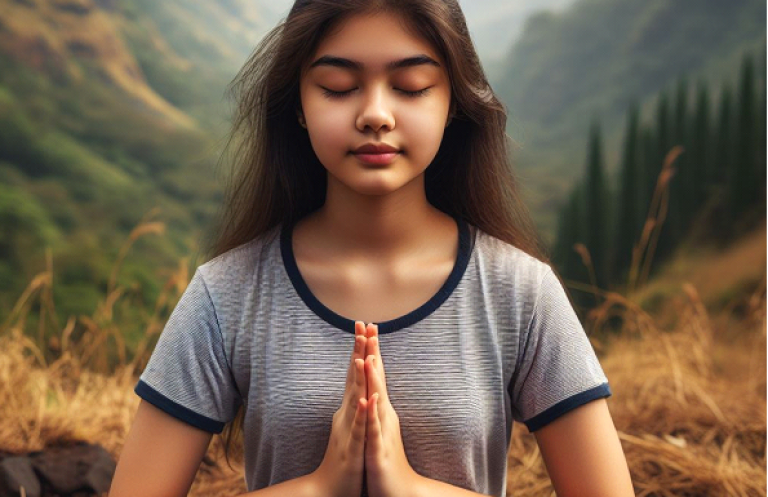As a 15-year-old high school student, I often felt the weight of academic expectations, social pressures, and self-imposed perfectionism bearing down on me. Despite my achievements and accolades, I sensed a deep-seated emptiness, anxiety, and disconnection from myself and the world around me. Seeking relief and a deeper understanding of my inner turmoil, I embarked on a transformative journey with Vipassana meditation.
Discovering Vipassana:
One evening, while immersed in my quest for inner peace and clarity, I stumbled upon Vipassana, an ancient meditation practice emphasizing mindfulness, awareness, and insight. Intrigued by its principles and potential benefits, I made the bold decision to attend a 10-day Vipassana retreat during my summer break, setting the stage for a profound journey of self-discovery, healing, and transformation.
Navigating Challenges and Gaining Insights:
Upon arriving at the retreat, I faced challenges I had never encountered before – extended hours of meditation, silence, introspection, and confronting my deepest fears, anxieties, and insecurities head-on. The initial days tested my resolve as I grappled with restlessness, discomfort, resistance, and doubt. However, with each passing day, I began to cultivate mindfulness, awareness, and equanimity, observing my thoughts, emotions, and sensations with non-reactive awareness.
As I delved deeper into my practice, I unearthed profound insights into my mind’s intricacies, patterns of thinking, emotional reactions, and habitual behaviors. I recognized the impermanent nature of my experiences, the interconnectedness of my thoughts, emotions, and sensations, and the role of attachment, aversion, and ignorance in my suffering. Through dedicated practice, I started to develop clarity, compassion, and wisdom, fostering self-awareness, acceptance, and transformation.
Embracing Transformation and Integration:
By the retreat’s conclusion, I experienced a profound shift in my perspective, understanding, and relationship with myself and the world around me. I cultivated resilience, acceptance, and peace amidst life’s uncertainties, challenges, and changes. I embraced a balanced relationship with my experiences, responding to them with grace, compassion, and wisdom.
Returning home, I noticed significant improvements in my mental, emotional, and physical well-being. I felt more connected to myself and others, grounded in the present moment, and empowered to navigate life’s challenges with clarity, compassion, and confidence. I eagerly shared my Vipassana experience, emphasizing its profound impact on my well-being, perspective, and approach to life.
Conclusion:
My journey with Vipassana meditation exemplifies the transformative power of mindfulness, awareness, and insight in fostering self-discovery, healing, and transformation. Through my dedication, perseverance, and openness, I navigated my challenges, embraced my vulnerabilities, and cultivated resilience, peace, and wisdom. My experience serves as a testament to Vipassana meditation’s transformative potential in empowering individuals, especially teens like me, to cultivate holistic well-being, self-awareness, and spiritual growth amidst life’s complexities, uncertainties, and changes.
